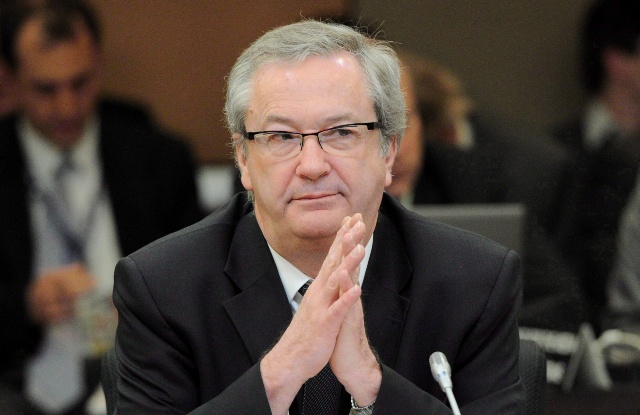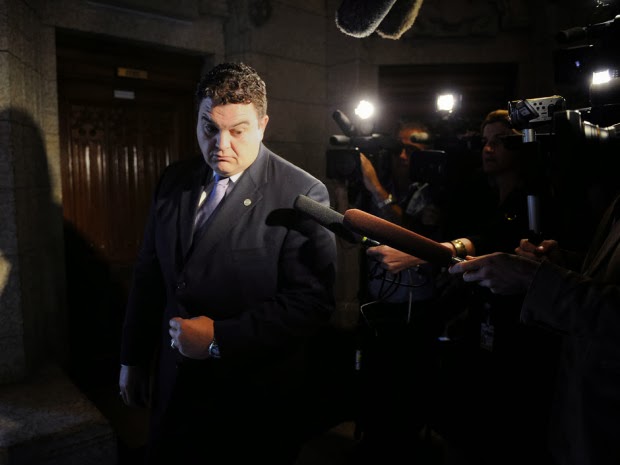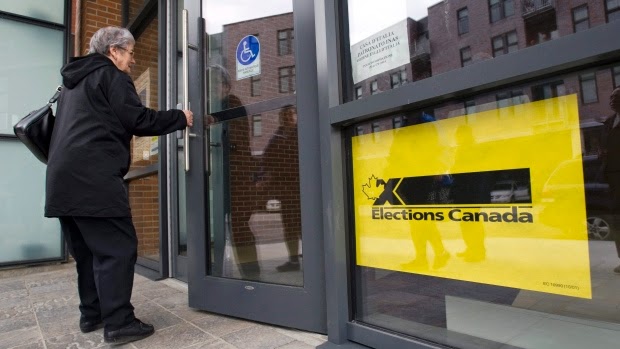
Two Conservative MPs could be suspended over election filings
Elections Canada has sent letters to the Speaker putting two Conservative MPs in legal limbo after failing to file campaign documents in the 2011 election. Saint Bonifice MP and Parliamentary Secretary to the Finance Minister Shelly Glover and Selkirk-Interlake MP James Bezan are challenging Elections Canada and if a judge rules against them, they will be thrown out of the House of Commons.
“Those letters advised the speaker that an elected candidate shall not continue to sit or vote as members of the House of Commons pending the filing of complete and accurate returns,” said Elections Canada spokesman John Enright.
On May 24, Glover sought an order to force Chief Electoral Officer Marc Mayrand to accept her updated campaign financial return. She also filed a complaint, claiming Mayrand misinterpreted how payments to campaign workers were apportioned along with how to deal with “inherited” campaign signs.
Glover’s expenses were just $660 short of breaking the law and any changes could put her in hot water.
Glover’s case is set to be seen in court June 21 and her lawyer David Skwark had no comments.
“My campaign in 2011 complied fully with the Elections Act,” Glover said. “Elections Canada has ordered that I claim expenses that my campaign did not incur, which is not consistent with the Act’s provisions.”
Elections Canada has been investigating Glover and Bezan since they refused to file their forms shortly after the end of the 2011 election campaign.
“This is the back and forth we do with agents all the time,” Enright said. “Where the process does not lead to a properly corrected return, the CEO will officially request a correction to the return within a certain period of time.”
Both campaigns show large donations to respective riding associations in election records, with little detail of how those funds then broke down.
Glover’s return only shows nine payments where $73,139 was donated to the St. Boniface Conservative association in two payments and represent the vast majority of her spending – it also didn’t indicate who got the money.
The filing included entries of $34,777 in “other advertising,” which breaks down to $18,257 for “surveys,” $1,333 for rent, $9,226 for office expenses and $9,545 as “miscellaneous expenses”
Bezan made similar claims to Glover. Bezan’s expenses stayed $17,000 below the election limit, with $28,000 extra that didn’t need to be declared.
“My campaign has complied with the Elections Canada Act,” Bezan said in a statement Tuesday afternoon. “This is an accounting dispute between the campaign and Elections Canada.”
He added that “Elections Canada approved my campaign returns for the 2006 and 2008 elections but have changed their interpretation, which is now not consistent with the Act’s provisions. Elections Canada is not being fair or reasonable in their application of the Act.
“My campaign will be challenging Elections Canada’s new interpretation and look forward to having our return properly adjudicated in a court of law.”
Bezan’s returns, included a series of payments to 10 people, and $53,254 in payments to his riding association which broke down to $17,253.31 for “other,” and $26,221.30 as “amounts not included in election expenses.”
NDP MP Craig Scott charged in the House of Commons asking “Why do the Conservatives and the Prime Minister continue to act as if they are above the law?”
Conservative MP Pierre Poilievre defended the two MPs saying “Due to legitimate differences of opinion, Election Canada’s interpretation of the rules is now before the courts. That is the members’ right to pursue and we support their right to pursue it.”
However, the conflict in campaign expenses has taken place in a riding that is hot in the investigation of the robocall scandal. Glover, who is in anticipation for a new cabinet position, is also under the microscope for harassing phone calls Liberals claim were made in the riding to their supporters. A few days before the end of the campaign, emails obtained through the Access to Information Act show the Liberals sent a complaint to Elections Canada about phone calls in the riding, misdirecting voters.
A spokeswoman for Speaker Andrew Scheer, a Conservative MP himself, said he didn’t see reason to take the two MPs out of the House of Commons.
“The Speaker has consulted House Officials on the facts and the provisions of the Canada Elections Act and the court applications for Mr. Bezan and Mrs. Glover,” said Heather Bradley. “The Speaker will await the decisions of the courts in the appeals before taking any action.”
Former House of Commons clerk B. Thomas Hall has never seen a case where the House of Commons was overruled over Election disputes but explained what could happen if the House refuses to suspend the two MPs upon the request of Elections Canada.
“If the House were to refuse to suspend the MP as required by the Canada Elections Act, the courts would probably not overrule the House,” he said. “However, politically that would look very bad for the majority in the House who voted not to suspend the MPs in question.”
Vague expense claims, a court challenge against Elections Canada and allegations of misleading robocalls plague Conservative MP Shelly Glover who is anticipating a promotion in cabinet, could these investigations be a blow to her political career? Did Elections Canada misinterpret the rules or are these Conservative MPs trying to hide something?





